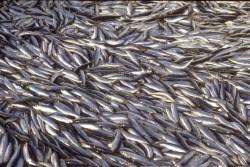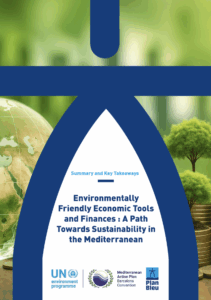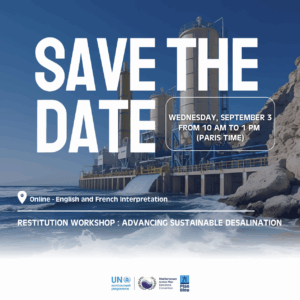
- Plan Bleu
Plan Bleu's missions
Make the Mediterranean a cooperation area for sustainable development
- themes
- projects
- Ressources
- publications
- Events
In the news
Last events
- Plan Bleu
Plan Bleu's missions
Make the Mediterranean a cooperation area for sustainable development

Providing socioeconomics insights for the appropriate management of Mediterranean resources

Facilitate a science – political and civil society interface

Supporting the transition towards a green and blue economy

Design possible futures for sustainable development

Observer of the environment and development to inform governments and the general public
- themes
- projects
- Ressources
- publications
- Events
In the news
Last events

Unsustainable fisheries to be reformed
Key figures
A doubling of the catch between 1950 and 1980 (1 000 000 t), stagnation since
82,000 vessels, of which over 80% for artisanal fisheries
Rapid decline in the number of ships in European countries, stability or slight increase in countries of the east and south
250,000 marine fishermen, for more than half in artisanal fisheries
From 1991 to 2006, fisheries in decline from 15% to nearly 60% (tuna, rays, sharks)
An ancestral and iconic activity
 Fishing is practiced in the Mediterranean for millennia. Taking advantage of the great ecological diversity of this enclosed sea, multi-species and multi-gear fisheries have been developed over time. Today they represent important socio-economic issues in most coastal countries. Fisheries are a source of nutrition, employment and income. The demand for fish products, emblematic of the Mediterranean lifestyle so prized by tourists, is still growing.
Fishing is practiced in the Mediterranean for millennia. Taking advantage of the great ecological diversity of this enclosed sea, multi-species and multi-gear fisheries have been developed over time. Today they represent important socio-economic issues in most coastal countries. Fisheries are a source of nutrition, employment and income. The demand for fish products, emblematic of the Mediterranean lifestyle so prized by tourists, is still growing.Challenges to overcome
Almost all Mediterranean fisheries have now to face serious challenges mainly: environmental degradation, overfishing and poor management of some shared resources such as the bluefin tuna.
To help improve the sustainability of fisheries in the Mediterranean, Plan Bleu has undertook a study program in three parts:
- Assessment of the state of fisheries,
- Economic and social analysis of fisheries and aquaculture sectors,
- Diagnosis and assessment of the economic leeway to reform of Mediterranean fisheries.
A downward trend, distinct according to the sub-basins
The synoptic survey of Mediterranean fisheries by geographical and species groups (excluding large pelagics) sectors was conducted by a method of analyzing the landing FAO data on the long term, according to the cycle of fisheries development (development maturity, senescence and possibly recovery) in the national areas of each riparian country. It shows that the total catch remains constant for about 25 years, despite a considerable increase in fishing effort. The fisheries of the west and north of the Mediterranean are at a more advanced stage of senescence than the south and east. Bottom species are more exploited that the small pelagic species, of lower value, but also less robust.
An economic and social analysis of fisheries and aquaculture sector
Knowledge of the economic sectors is a prerequisite for the development of effective management policies. If landing data are relatively well recorded, it is not the same for socioeconomic data. The work led by Plan Bleu has synthesized scattered data and supplemented them by expert judgments. There is a fall of the number of fishermen and vessels for European countries and a steady rise for those in the south and east.
Aquaculture (freshwater and marine) showed a sharp increase from the year 1990 and now exceeds marine fisheries in volume. Tentative assessment of the economic leeway to reform fisheries In the framework of studies on green growth in the
Tentative assessment of the economic leeway to reform fisheries
In the framework of studies on green growth in the Mediterranean, Plan Bleu has completed these above findings by macroeconomic assessments as on subsidies, which allow unsustainable practices to continue. Using an aggregated bioeconomic model, it has been shown that achieving maximum sustainable economic rent would require halving the current fishing effort. The savings generated would significantly support the reduction of the fishing effort, by adopting a differentiated approach between artisanal and industrial fisheries.
Publications
Subscribe to the newsletter
Subscribe to Plan Bleu’s newsletter to stay updated



-
Plan Bleu
Tour la Marseillaise
2 bis, Boulevard Euroméditerranée
Quai d'Arenc
13002 Marseille - France - [email protected]
- +33 (0)6 43 08 20 23







